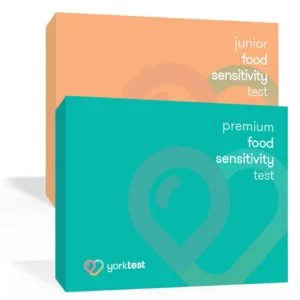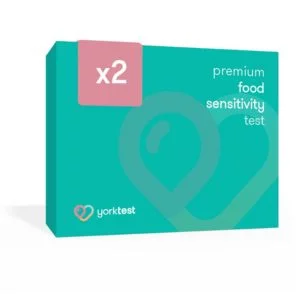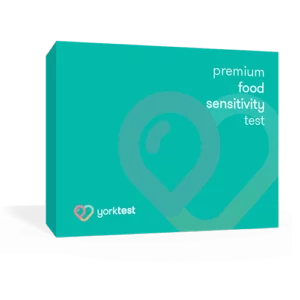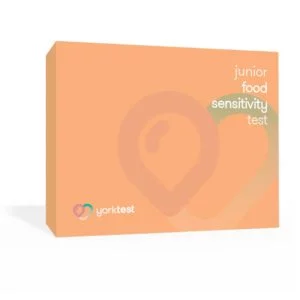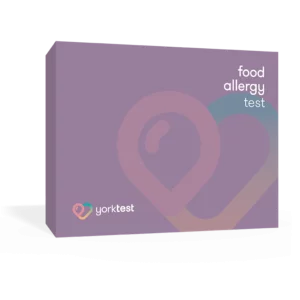- Are YorkTest food sensitivity tests HSA or FSA eligible items?
- What exactly is an FSA or HSA health care plan?
- HSA v FSA – whatâs the difference?
- Can I use my FSA/HSA plan for food sensitivity testing?
- How do I pay for my food sensitivity test with my FSA/HSA funds?
- Ready to test for food sensitivity using your HSA/FSA plan?
Are YorkTest food sensitivity tests HSA or FSA eligible items?
If you suspect you have a food sensitivity, you’ll want to get it sorted out as soon as possible. Things like bloating, nausea, diarrhea and migraines can have a serious impact on your life. In order to analyze and assess your health, you might need to consider food sensitivity tests – but do they qualify as FSA or HSA eligible expenses?
What exactly is an FSA or HSA health care plan?
A Flexible Spending Account (FSA) / Health Savings Account (HSA) is a medical savings account with tax benefits, designed to allow you to set aside pre-tax savings to go towards your treatments, healthcare and other medical expenses.
HSA v FSA – what’s the difference?
When it comes to HSA v FSA, there are a few differences to consider. Most significantly, HSAs are enrolled into and managed by you and contributions can roll over to other schemes, while an FSA will be owned and managed by your employer and have less flexibility with transferring savings from plan to plan.
At the end of the year for a HSA, any unused savings will roll over to the next year, meaning you can save up untaxed money to spend on future healthcare. With an FSA, as explained by the official healthcare government site, your employer will decide whether up to $550 can be rolled over, or whether you get a 2.5 month ‘grace period’ in which to use your savings.
There are other differences too, including annual contribution limits, withdrawal penalties and contribution changes.
- Under an FSA, the annual contribution limits are $5,300 per household and $2,650 per individual, while for HSA it’s $6,900 per household and $3,450 per individual (for those aged 55 and above you can also make additional ‘catch up’ payments, which can add £1,000 to your HSA plan).
- HSA plan owners can take out savings tax-free after the age of 65 – prior to that, withdrawals will be subject to a 20% tax and must be declared with your income tax. FSA expenses may have to be submitted for approval, and it will be up to your employer whether you can withdraw funds for non-medical expenses.
- If you have a HSA you can make contribution changes whenever you want (as long as you stick to your limits); FSA rules mean you can only make changes at enrollment, if there are changes to your family, or if you change employer or plan type.
HSAs have a few more restrictions for joining than an FSA, meaning you need to check that you meet certain criteria in order to open one – for example, you must have a High Deductible Health Plan to open a HSA, and you can’t be covered by Medicare or be claimed as a dependent on someone else’s tax return (unless it’s your spouse).

Can I use my FSA/HSA plan for food sensitivity testing?
For the majority of plans, YorkTest’s Premium Food Sensitivity Test is an eligible HSA or FSA product, and is accepted by a number of providers. Many plans consider YorkTest’s service as a qualified medical expense under HSA and FSA, meaning they allow designated healthcare savings from eligible plans to be used as payment. To make sure you’re covered, we recommend getting in touch with your provider before purchasing your food sensitivity test to double check your inclusions.
A qualified medical expense is defined in IRS Publication 502 as the cost of treatment, cure, diagnosis, mitigation or prevention of a disease. The expense must be used principally to prevent or help ease the symptoms of a physical/mental illness or disability in order to meet the criteria for HSA and FSA. Food sensitivity tests work to identify digestive issues so you can alter your diet to try and prevent things like bloating, nausea and stomach cramps. Â
How do I pay for my food sensitivity test with my FSA/HSA funds?
In order for sensitivity tests to be included as HSA or FSA eligible expenses in 2021, you would need to have bought the test this year.
If eligible, you will be able to claim your test as a HSA or FSA qualified medical expense. How you pay for your food sensitivity plan will depend on the set up of your plan. Usually you’ll either receive a dedicated debit card for your plan and use this to pay, or pay with your own funds and then request an itemized receipt from YorkTest, which you then submit to your HSA/FSA medical plan provider for a reimbursement of costs.
To request an itemized receipt for your HSA or FSA healthcare provider or for more information on eligible plans, send an email to [email protected] with the following information:
- Your YorkTest order number
- Your full name
- The date of your purchase
Ready to test for food sensitivity using your HSA/FSA plan?
Find out more about our easy-to-use test and how it works here.
To learn more about using FSA/HSA funds to pay for your Food Sensitivity testing, or for details on the testing process itself, get in touch with our friendly Customer Care team.


